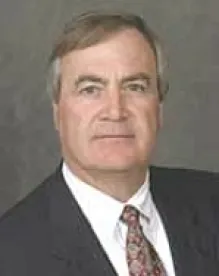Motions to strike testimony of Defendant’s Expert and Plaintiff’s rebuttal expert were denied by Judge Jones in this patent dispute over a interface technologies. Two paragraphs comprising 373 words described the intention of Defendants’ expert to provide testimony “about the history, evolution, development, and technical operation of … interface technologies.” Plaintiff moved to strike this testimony as failing to provide a summary of each opinion the expert proposes to offer at the Claim Construction Hearing. The Court noted that Plaintiff was correct that Defendant’s expert had not disclosed any opinions that he intended to offer.
Plaintiff in turn offered a rebuttal expert merely stating by way of description that the expert would “provide rebuttal expert testimony” to the testimony allowed from Defendants’ expert (should any be allowed).
Both parties relied upon LPR 6.3(b)(4) which specifically requires “a summary of each opinion to be offered in sufficient detail to permit a meaningful deposition of that expert.” The Court took a practical approach to interpreting the rule and conforming the ruling to the holding in Friskit, Inc. v. RealNetworks, Inc., No. C 03-5085 FMS, 2005 WL 6249309 (N.D. Cal. Mar. 22, 2005), which applied an identical local rule. Friskit precluded testiomy because the offering party “failed to provide the level of disclosure required under its local rule by merely ‘reserving the right to sue an expert, without addressing the specifics of his/her testimony.” 2005 WL 6249309, at *1.
In reliance on Friskit, Plantiff contended Defendants merely recited topics the expert would cover, not opinions that he holds Despite the failure to summarize the opinion the expert intended to offer, the Court pointed out that the type of information the expert was sharing – “developmental background and technical operation of the technology at issue – is not readily susceptible to a brief summary.” In short, sufficient information was disclosed to allow for a meaningful deposition – as required by the local rule.
The Court further noted that the disclosures of a rebuttal expert are necessarily confined to rebutting the testimony of the affirmative expert. Therefore, the simple disclosure that the Plaintiff’s expert would be testifying “as a rebuttal expert in the field of the claimed invention at the relevant time” was sufficient for a meaningful deposition to be taken.
Both motions were denied.
The Court’s approach was practical and tailored to fit the requirements of Claim Construction Hearings, where expert testimony is not being directly offered to establish infringement, validity, or apply claims to an accused product. By framing its expert’s testimony as being historical, factual, and more in the nature of a primer on the technology, the Defendants convinced the Court that the Plaintiff would be able to meaningfully explore any areas of concern in the deposition. After allowing the Defendants’ expert to testify without specifying particular opinions to offer, the Court ruled that it would suffice for Plaintiff’s expert to merely state that he/she would rebut the opinions Defendants’ expert should offer.
While this Order should serve as a valuable model and precedent for experts providing technology primers and field of invention histories in the Claim Construction Hearings, citing it to avoid full disclosures of infringement, invalidity, and inequitable conduct opinions is unlikely to meet with similar results.
The case is Synchrome Technology, Inc. v Toshiba America Information Systems, Inc. and Asmsung Semiconductor, Inc., Civil Action File No. 1:09-CV-01736-SCJ in the United States District Court for the Northern District of Georgia, Atlanta Division, and the Order was entered on April 25, 2013, by District Court Judge Steve C. Jones.



 />i
/>i

